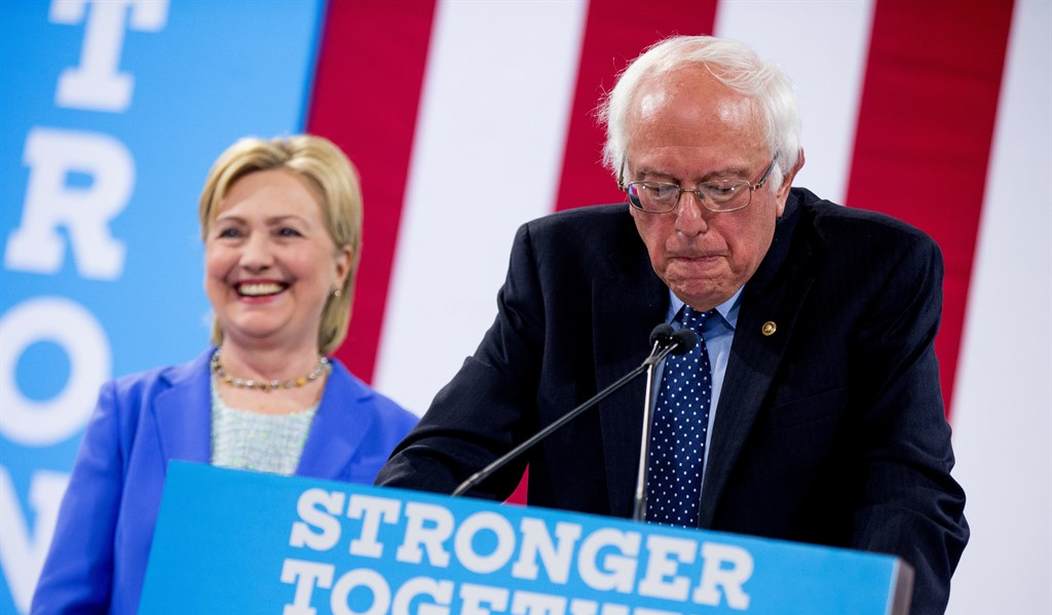"Superdelegate" was probably the biggest buzzword of the 2016 election. Supporters of Sen. Bernie Sanders (I-VT) were pretty ticked at how Hillary Clinton received far more superdelegates than their candidate in states where he won an overwhelming majority of the popular vote.
Some states, like Maine, voted to essentially strip superdelegates of all of their power by tying their vote to the results of the primary. (The Democratic National Committee was not thrilled by this.)
With the Democratic National Convention beginning on Monday, Sanders supporters made one last-ditch effort to eliminate the superdelegate system. While they didn't succeed in their endeavor, there was a "Unity Commission" compromise: Congressmen, governors, and other parties leaders are free to support whoever they want, but other unpledged delegates have to vote for candidates in proportion to the vote they received in the state.
"The Commission shall make specific recommendations providing that Members of Congress, Governors, and distinguished party leaders remain unpledged and free to support their nominee of choice," reads the new rules language, "but that remaining unpledged delegates be required to cast their vote at the Convention for candidates in proportion to the vote received for each candidate in their state."
According to the new rules, approved by a vote of 158 to 6, Democrats will appoint a unity commission of 21 members "no later than 60 days" after the general election, chaired by Clinton supporter Jennifer O'Malley Dillon and vice-chaired by Sanders supporter and former Communications Workers of America president Larry Cohen. That commission would report by Jan. 1, 2018, and get a vote on its proposals by the next meeting of the Democratic National Committee, long before the 2020 primaries.
Recommended
Let's see if anything actually changes come 2020--especially in light of those damning leaked emails.

























Join the conversation as a VIP Member